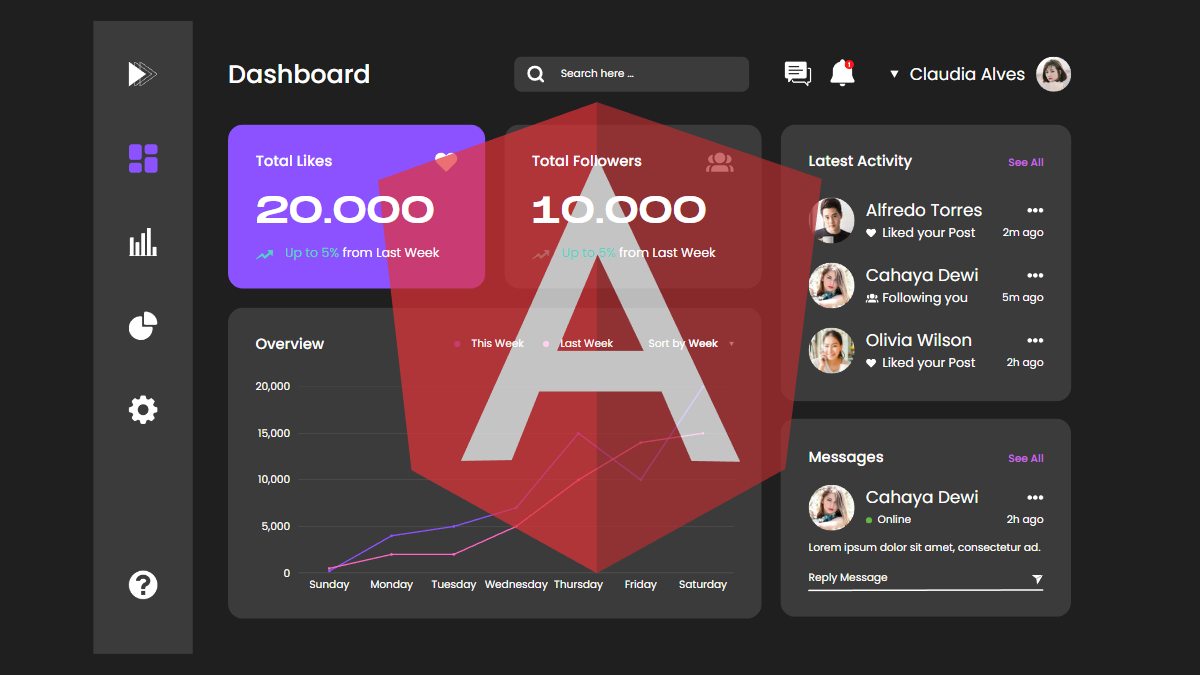When should you use bespoke software?
TL;DR
Bespoke software offers numerous advantages for businesses seeking tailored solutions. Compared to off-the-shelf software, bespoke solutions provide flexibility, scalability, enhanced security, competitive advantage, and improved user experience. Bespoke software is the right choice when a company has unique requirements, needs seamless integration with existing systems, and values long-term growth and adaptability. The agile approach to bespoke software development fosters close collaboration, flexibility, and continuous improvement, resulting in a high-quality, custom solution that meets the organization's specific needs. By understanding the differences between bespoke and off-the-shelf software and carefully evaluating factors such as unique business requirements and long-term objectives, companies can make informed decisions about whether a custom software solution is the most suitable option for their success and growth.
In today's competitive business landscape, companies must continually adapt and innovate to stay ahead of the curve. One crucial aspect of this process is selecting the right software to streamline operations, improve efficiency, and meet the unique needs of each organization. There are various software solutions available in the market, but the decision to choose between off-the-shelf and bespoke software can be challenging. This article aims to provide insight into bespoke software, its advantages, and when it may be the right choice for your business.
In the following sections, we will delve deeper into understanding bespoke software, comparing it with off-the-shelf software, and discussing the benefits it brings to the table. We will also identify scenarios where bespoke software is the ideal solution and shed light on the software design process. By the end of this article, you will have a clearer perspective on when to consider bespoke software for your business.
2. Understanding Bespoke Business Software
Bespoke software, also called custom software or custom platform, is a tailor-made pre-packaged solution developed specifically to address a company's unique needs and requirements without unnecessary functionality. Unlike off-the-shelf software, which offers a one-size-fits-all approach, custom software is designed and built from the ground up, taking into consideration the specific demands, processes, and objectives of the organization. This customization allows for more efficient and effective integration with existing systems and workflows.
Development typically involves close collaboration between the company and a software development team. This partnership ensures that the final product aligns with the organization's goals, culture, and business practices. Additionally, custom software often involves an iterative process, where the software is continually refined and improved based on user feedback and changing business needs.
Companies that choose this approach benefit from several advantages. First and foremost, bespoke solutions offer a high degree of flexibility and scalability. Since the software is designed exclusively for the organization, it can easily accommodate changes in the company's structure, processes, or objectives without the need for costly and time-consuming modifications that may be required with off-the-shelf software.
Moreover, this results in a more user-friendly experience, as it is tailored to the specific needs and preferences of the company's employees. This can lead to increased productivity and job satisfaction, as workers can focus on their core tasks without having to navigate through unnecessary features or adapt to a generic interface. Additionally, the software can be designed to integrate seamlessly with the company's existing systems and tools, thereby minimizing disruptions and ensuring a smooth transition.
Another advantage is the ability to maintain a competitive edge in the market. Since the software is a custom platform developed exclusively for a specific company, it can incorporate unique features and functionalities that set the organization apart from its competitors. This can lead to improved customer satisfaction and retention, as well as increased market share.
Custom software can provide enhanced security compared to off-the-shelf solutions. Commercial software is often targeted by hackers due to its widespread usage and mass market, while custom software is less likely to be on their radar. Additionally, custom software can be built with specific security measures tailored to the company's requirements, ensuring more robust protection against cyber threats.
However, it's important to note that this approach can be a more resource-intensive endeavor compared to adopting off-the-shelf solutions. It often requires a higher upfront investment in terms of time and cost, and it's crucial to find a reliable and experienced software development team to ensure the success of the project.
Bespoke software is a tailor-made solution that offers numerous advantages to organizations seeking a highly customized, flexible, and secure software solution. By addressing the unique needs and requirements of a company, bespoke software can streamline processes, improve efficiency, and promote a competitive edge in the market. While the initial investment may be higher than that of off-the-shelf solutions, the long-term benefits often outweigh the costs, especially when considering the ability to adapt and scale with the company's growth and changing objectives.
3. Comparing Bespoke Software and Off-the-Shelf Software
Let's focus on the differences, advantages, and disadvantages of bespoke software and off-the-shelf software.
3.1. Differences between Bespoke Software and Off-the-Shelf Software
The primary difference between bespoke software and off-the-shelf software lies in their customization levels. Bespoke software is a custom solution developed specifically for a company's unique needs and requirements, whereas off-the-shelf software is a ready to use software already-made, commercial solution catering to a broader market. Off-the-shelf software often includes a wide range of features that may not be relevant to every business, while bespoke software is tailored to include only the functionalities that are essential for the organization's operations and provide a seamless experience.
Another distinction is the cost structure. Bespoke software usually requires a higher upfront investment but can offer long-term savings due to better alignment with the company's processes, leading to increased efficiency. In contrast, off-the-shelf software typically has a lower initial cost, but ongoing expenses like licensing fees, maintenance costs, and potential customization charges may add up over time.
The development process also differs, with a bespoke software project involving close collaboration between the company and a software development team, while off-the-shelf software is purchased and deployed with little to no input from the organization. This difference impacts the final product's adaptability, scalability, and integration with existing systems.
3.2. Advantages of Off-the-Shelf Software
Off-the-shelf software offers several benefits that can make it an attractive choice for businesses. One key advantage is its lower initial cost, making it a more affordable option for companies with budget constraints. Furthermore, commercial software is readily available, allowing for quicker deployment and implementation within the organization.
Another benefit of off-the-shelf software is the extensive community support and documentation often provided by the software vendors. This can lead to faster issue resolution and easier access to resources for training and troubleshooting.
Finally, off-the-shelf software often receives regular updates and improvements from the software vendor, which can include new features, performance enhancements, and security patches, ensuring the software remains up-to-date with the latest technology trends and industry standards.
3.3. Disadvantages of Off-the-Shelf Software and Advantages of Bespoke Software
Despite its benefits, off-the-shelf software has some drawbacks that can make bespoke software a more suitable choice for certain businesses. One major disadvantage is the limited customization of commercial software. Companies may find it challenging to adapt off-the-shelf solutions to their specific needs, leading to inefficiencies and workarounds that can hinder productivity.
Another drawback is the potential for bloat, as off-the-shelf software may include numerous features that are irrelevant to the company's operations. This can result in a cluttered user experience and increased complexity.
By choosing custom software, companies can overcome these disadvantages. Bespoke solutions offer high levels of customization, ensuring a perfect fit with the organization's unique requirements. This leads to better efficiency, improved user experience, and a competitive advantage in the market. Additionally, bespoke software can be built to scale with the company's growth, offering long-term adaptability and flexibility.
4. Choose Bespoke Software
Let's focus on these specific advantages:
4.1. Flexibility and Scalability
One of the most significant advantages of bespoke software is its flexibility and scalability. Custom solutions are designed to adapt to the unique processes and requirements of an organization, making it easier to accommodate changes in business structure, goals, or industry regulations.
As the company grows or evolves, bespoke software can be seamlessly modified or expanded to meet new demands without the need for extensive and costly overhauls. This adaptability ensures that the software remains relevant and efficient in the long run, providing businesses with a robust foundation for sustained growth and success.
4.2. Enhanced Security
Bespoke software offers enhanced security compared to packaged software. Since custom software is tailored for a specific organization, it is less likely to be targeted by hackers seeking vulnerabilities in widely-used commercial software.
Furthermore, bespoke software can incorporate security measures specifically designed to address the company's unique risks and requirements. This results in a more secure environment, protecting sensitive data and safeguarding the organization from potential cyber threats.
4.3. Competitive Advantage
Investing in bespoke software can provide companies with a distinct competitive advantage. By developing a solution tailored to the organization's unique needs, businesses can introduce innovative features and functionalities that set them apart from their competitors. Custom software enables companies to streamline their processes, improve efficiency, and offer better customer experiences.
As a result, businesses can enhance their market position, increase customer satisfaction and loyalty, and have business models that ultimately drive growth and profitability through the use of dedicated software solutions.
4.4. Improved User Experience and Integration
Bespoke software delivers an improved user experience by focusing on the specific needs and preferences of a company's employees. Custom solutions are designed to fit seamlessly within existing workflows, reducing the learning curve and boosting productivity.
Furthermore, bespoke software can be built to integrate effortlessly with other systems and tools used for business functions within the organization, minimizing disruptions and ensuring a cohesive technology ecosystem that supports efficient operations and drives business success.
5. Identifying When Bespoke Software is the Right Choice
5.1. Unique Business Requirements
One of the primary indicators that bespoke software is the right choice for a company is the presence of unique business requirements that cannot be adequately addressed by off-the-shelf solutions. These requirements may stem from specialised business processes, industry-specific regulations, or the need for innovative features that differentiate the business from its competitors.
In such cases, a custom-built software solution can provide the necessary functionality and flexibility to meet the organization's needs, ensuring that critical aspects of the business are supported effectively and efficiently. By identifying and assessing these unique requirements, companies can determine when bespoke software is the most suitable option for their operations and business model.
5.2. Integration with Existing Systems
Another factor to consider when deciding whether bespoke software is the right choice is the need for seamless integration with existing systems and tools within the organization. Off-the-shelf solutions may not always offer the required compatibility, leading to inefficiencies, data silos, or the need for costly workarounds. Bespoke software, on the other hand, can be developed to ensure optimal compatibility with the company's current technology ecosystem.
This results in streamlined workflows, improved data sharing, and reduced operational disruptions. By evaluating the importance of integration and the limitations of commercial software in this regard, businesses can better understand when a custom-built solution is the most appropriate choice for its enterprise
5.3. Long-term Growth and Adaptability
Considering long-term growth and adaptability is essential when determining if bespoke software is the right choice for a company. As businesses evolve, their software requirements may change due to expansion, shifting objectives, or updated industry regulations. Off-the-shelf solutions may struggle to accommodate these changes, whereas bespoke software can be updated or modified more easily to support the company's growth. By evaluating the organization's future goals and the potential need for software adaptation, businesses can make an informed decision about whether a custom solution is the best investment for their long-term success.
6. Bespoke Software Development Process
6.1. Requirement Analysis
In the agile approach to bespoke software development, requirement analysis involves close collaboration between the development team and the client to define and prioritize user stories, features, and desired outcomes. This iterative process ensures that the team has a clear understanding of all the features and the client's needs and expectations throughout the project.
6.2. Design and Planning
During the design and planning phase, the development team creates a high-level roadmap and organizes the project into manageable sprints. This approach enables flexibility in addressing changing requirements and allows for continuous improvement based on client feedback and insights gathered during development.
6.3. Development and Implementation
In the development and implementation stage, the team works on building the software incrementally, with each sprint focused on delivering a functional piece of the solution. Agile methodologies emphasize close collaboration, frequent communication, and adaptability, ensuring that the software evolves in response to client needs and feedback.
6.4. Testing and Deployment
Throughout the agile development process, testing of source code is performed continuously, identifying and addressing potential issues early on. Once the software is deemed ready for deployment, it is released in stages, allowing for further feedback and refinements as needed. This iterative approach ensures a high-quality, tailored solution that meets the client's unique requirements.
Conclusion
In conclusion, choosing bespoke software can provide significant advantages for businesses seeking a customized solution that addresses their unique requirements offers scalability, and integrates seamlessly with existing systems. By understanding the differences between bespoke and off-the-shelf software and considering factors such as long-term growth and adaptability, companies can make informed decisions about whether a custom business software solution is the right choice for their needs
Employing an agile approach to development ensures flexibility, collaboration, and continuous improvement throughout the project, resulting in a high-quality, tailored software solution that drives business success and growth.
Solve With Software Ltd can help craft the perfect solution for your business using the latest cutting edge technology, creating software that benefits your business rather than a mass market





